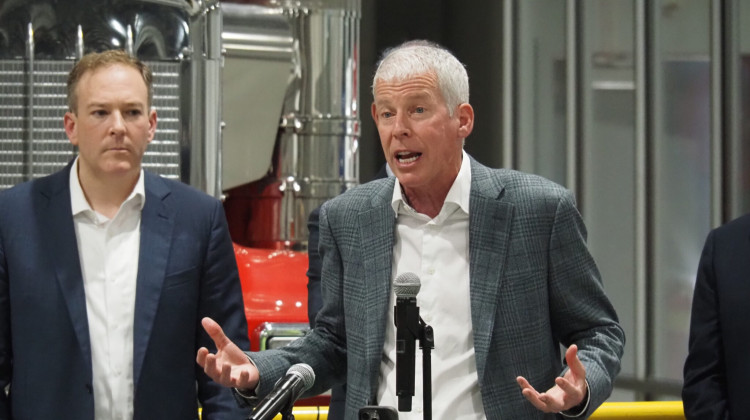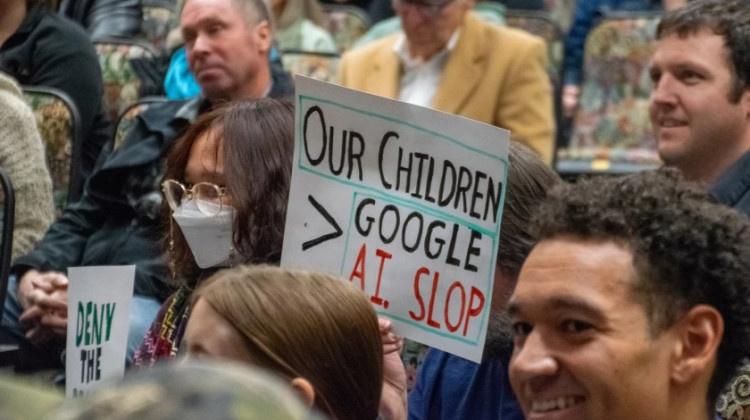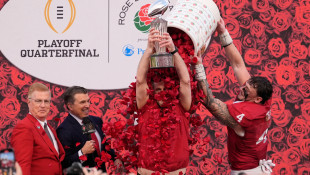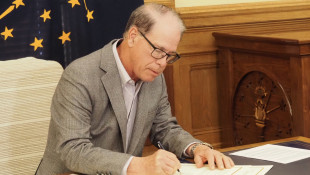People living in three Indiana college towns have a new way to get around. The ride-sharing service Uber is now available in South Bend, Lafayette and Bloomington.
Using a phone app, Uber connects people who need rides to drivers. But, the service has sparked lawsuits over safety and licensing concerns.
In Germany, a court just banned Uber from operating anywhere in the country. And, not everyone in Indiana is ready to embrace the new technology either.
Brian Seng’s Ford Focus has clocked a lot of miles this week.
"Monday, Labor Day itself, was a very busy day, more than I’ve ever seen," he said.
He works fulltime in Indianapolis, but recently took on another, part-time gig as a driver for Uber.
The ride-sharing service alerts Seng when someone requests a ride. If he accepts the job, it dispatches him to the location and keeps track of the fare, all on his phone.
"It’s just a little easier than a normal job where you have to do physical labor, clock in and clock out here it’s easy, go online when you want to work, go offline when you’re ready," Send said. "No set hours."
And, in a college town like Bloomington, where many students are without cars, Seng says it’s a nice way to make quite a bit of money.
"It’s worth it as long as you’re not driving around looking for work," he said.
While staying busy is good for Seng, the owner of E2 taxi in Bloomington, James McLary, is worried it could mean trouble for him.
"There is a fear," McLary said. "My wife and I have invested a lot of money in this. We’ve invested in the community and we don’t want to lose that investment. It’s possible we could."
E2 taxi also offers a phone app where customers can request a ride. They can keep track of where the taxi is and pay without using cash.
McLary says the only difference between E2 and Uber is that his company is operating legally.
"The city ordinance requires you to have an office in the city, the city ordinance requires you to post your fares. They don’t," McLary said. "The city ordinance requires $2 million of CGL. They don’t have it. The city ordinance requires you to mark the car so that people can see, there’s a whole number of things they don’t meet."
But, Uber insists those rules don't apply because it's not a traditional taxi service. The drivers aren’t employees, they’re independent contractors. They use their own cars instead of cars provided by the company.
Chris Nakutis oversees Uber’s Indiana operations and says the company does provide "umbrella coverage" beyond the insurance drivers carry.
"On the insurance end, we have a best in class, that provides up to $1 million in insurance both rider and driver while they’re on a trip," Nakutis said.
Because of Uber’s business model, the company says it doesn’t need to be licensed by the city as a taxi company.
The city of Bloomington released a statement in response to the ride-sharing program’s expansion, saying, “The City is very much aware of the fact that Uber is engaged in significant amounts of litigation in other cities and towns over this very issue. To that end, the City is in the process of reviewing all defenses raised by Uber, ongoing litigation involving Uber, and its own ordinance to ensure that any actions taken by the City in regards to Uber are appropriate.”
While Bloomington officials haven't decided how to move forward, Indianapolis is embracing Uber.
Officials there are allowing the ride-sharing service, and another one called Lyft, to operate under a pilot program.
And, in the year Uber’s been in town, Department of Code Enforcement Spokesman Adam Baker says they haven’t gotten many complaints.
"We have not had the level of complaints or issues that have arisen that would allow us or would cause us to take head and sit down and say, ok, maybe we need to move a step further with them," Baker said.
Chris Gahl with Visit Indy says Uber’s presence is actually helping the city, by showcasing innovation. It puts Indy on the same level as other, in some cases larger, cities.
"Before Uber and Lyft entered our market place, we had a growing number of event decision makers, meeting planners who were proactively asking us, do you have Uber and Lyft in your marketplace," Gahl said. "Being able to say yes we do helps us stay competitive and book more, larger conventions."
Gahl says there’s enough demand for both taxis and ride-sharing services in Indy that they can co-exist.
 DONATE
DONATE






 View More Articles
View More Articles


 Support WFYI. We can't do it without you.
Support WFYI. We can't do it without you.